If you find yourself grappling with the serious issue of defamation, you're not aloneâmany individuals and businesses face similar challenges when their reputations are unjustly tarnished. In this article, we'll explore the essential elements of a defamation lawsuit warning letter and how it can serve as a crucial step in protecting your good name. We'll break down key strategies for crafting a compelling message that conveys the severity of the situation while opening the door for potential resolution. Ready to learn more about how to safeguard your reputation from harmful statements? Keep reading!
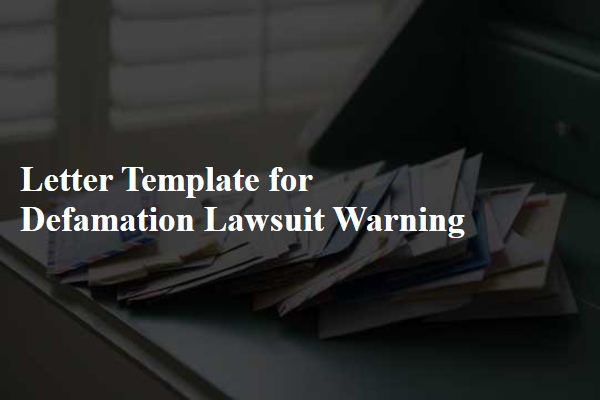
Clear identification of parties involved
In the realm of civil litigation, a defamation lawsuit warning must clearly identify the involved parties to establish the basis for the claim. The plaintiff, typically the individual or entity alleging harm, must provide their full name, address, and, if applicable, a brief description of their professional background. The defendant, the person accused of making false statements, must also be identified with their full name and relevant details such as their place of employment or affiliation. Furthermore, it is essential to outline the specific defamatory statements made by the defendant, including the date of the remarks, the medium through which they were communicated (e.g., social media, print, or verbal), and the context surrounding the statements to support the claim of reputational damage. A thorough identification process ensures clarity in the legal proceedings and aids in addressing any potential defenses raised by the defendant.
Specific defamatory statements
Defamation lawsuits arise when false statements harm someone's reputation. Specific defamatory statements might include claims that falsely accuse an individual of criminal activities, such as embezzlement, or character attacks that assert infidelity without evidence. These statements can significantly impact personal relationships and employment opportunities. For instance, social media platforms like Twitter and Facebook can spread damaging information rapidly, leading to significant public backlash. This situation highlights the importance of protecting one's reputation against potential slanderous comments, especially from public figures, businesses, or anonymous sources. Legal action may involve sending a formal cease and desist letter to the party responsible, outlining the specific statements in question and their harmful effects.
Evidence supporting the claim
In a defamation lawsuit warning, the plaintiff should emphasize the significance of verifiable evidence, such as recorded communications, witness testimonies, and public records. For example, social media posts or news articles featuring derogatory statements about the plaintiff may serve as critical proof. The timeline is crucial; events occurring between January 2023 and October 2023 can be central to establishing the context of the claims. The jurisdiction, such as California or New York, may influence the legal standards for defamation. Additionally, identifying parties involved, like specific individuals or organizations, can clarify the scope of the accusations. Documenting the emotional and financial impact is fundamental; this may include the loss of job opportunities, mental distress, or damage to reputation within particular communities or industries.
Legal consequences and demands
Defamation, often defined as a false statement that injures a person's reputation, can lead to significant legal consequences. In situations involving potential defamation, such as public accusations made in social media or published articles, individuals may be entitled to seek damages. Legal proceedings can arise in jurisdictions like California, where libel and slander laws require clear evidence of falsehood and harm. Essential to these cases is the necessity of providing factual documentation of the statements made, the context of their dissemination, and the impact on the aggrieved party's personal and professional life. Respondents may also be required to cease further dissemination of the damaging statements and provide a formal retraction. Seek professional legal counsel to navigate this complex area of law effectively.
Deadline for response and settlement options
A defamation lawsuit warning highlights potential legal actions regarding false statements harming an individual's reputation. The warning typically includes a deadline for response, often set at 30 days from the date of notice, allowing the accused party a chance to address the allegations and propose a settlement. Settlement options may encompass monetary compensation, public retraction of false statements, or a formal apology. Failure to respond within the stipulated timeframe might lead to the commencement of legal proceedings in the relevant jurisdiction, often emphasizing the importance of resolving such matters amicably to avoid lengthy and costly litigation. Time-sensitive actions are crucial in these scenarios, ensuring that both parties have an opportunity to negotiate and mitigate potential damages.
Letter Template For Defamation Lawsuit Warning Samples
Letter template of defamation lawsuit warning regarding online statements
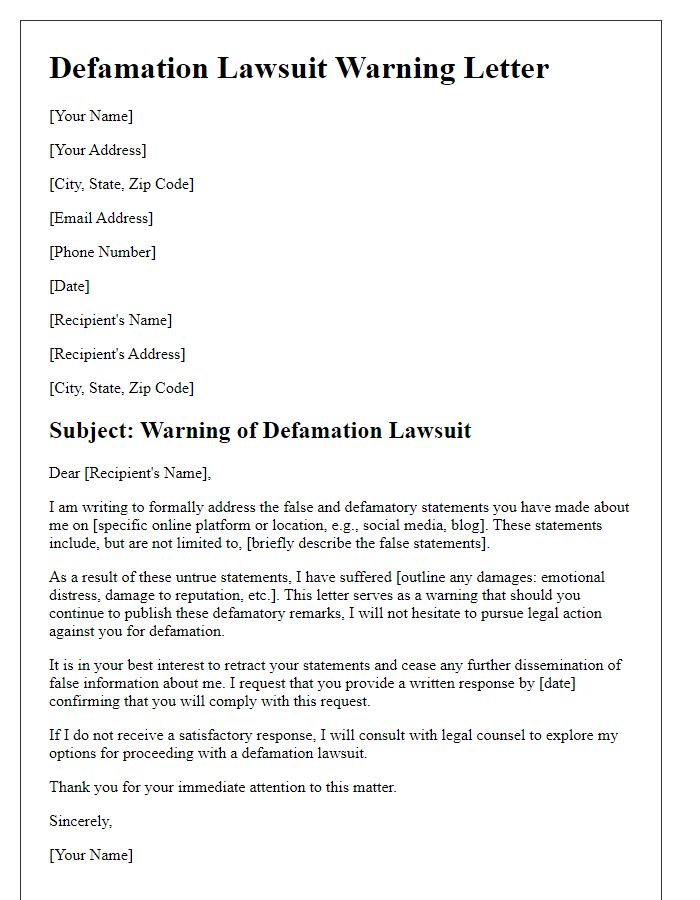
Letter template of defamation lawsuit warning addressing false accusations
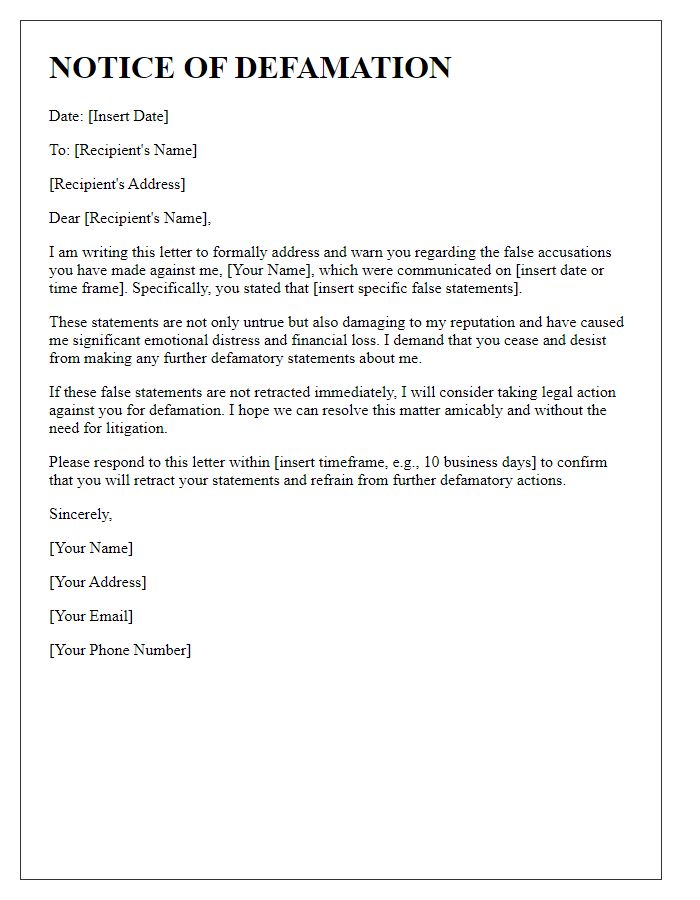

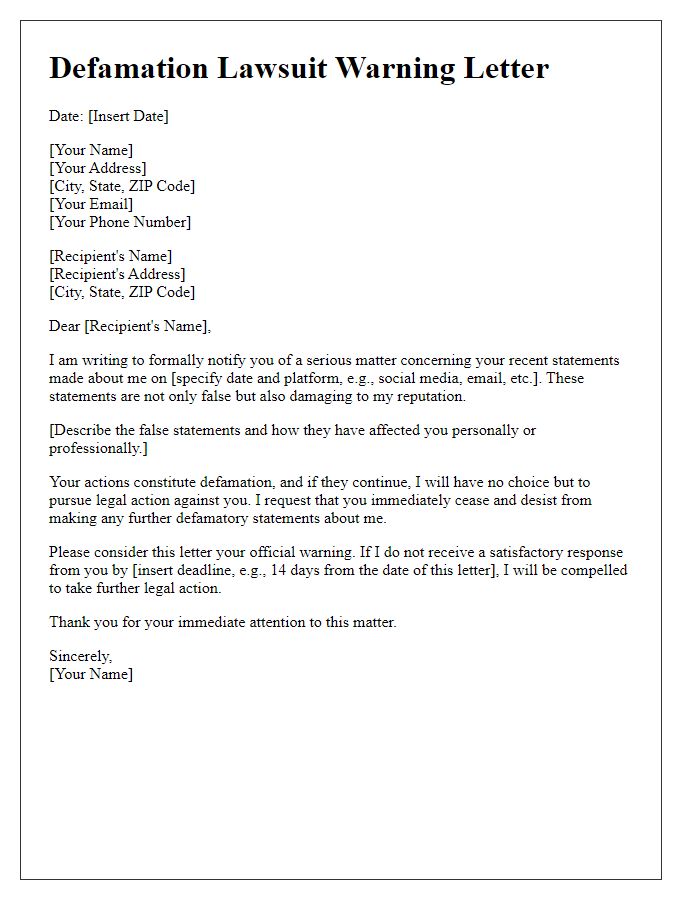
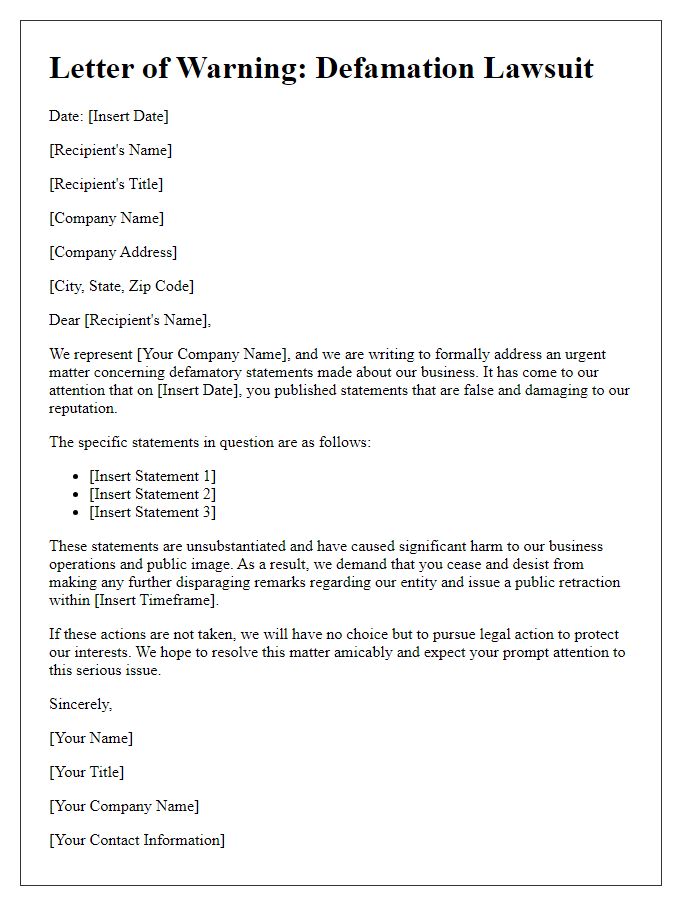
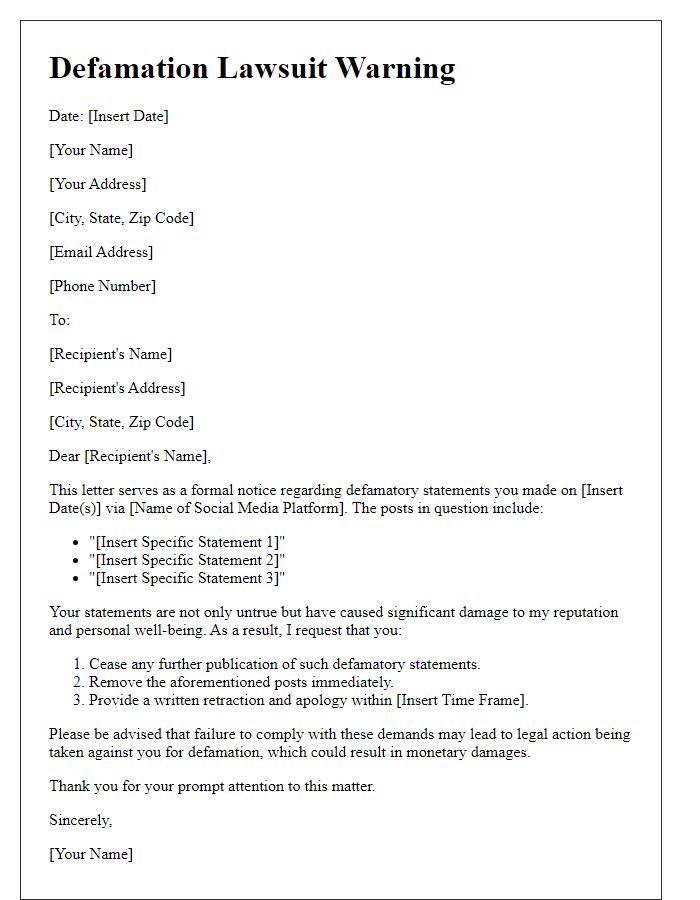
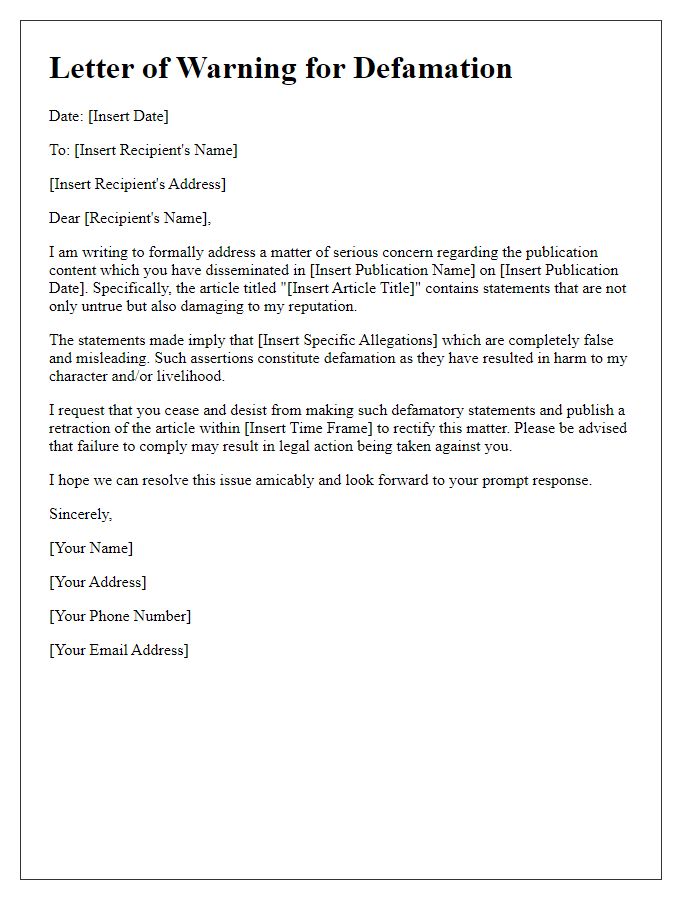
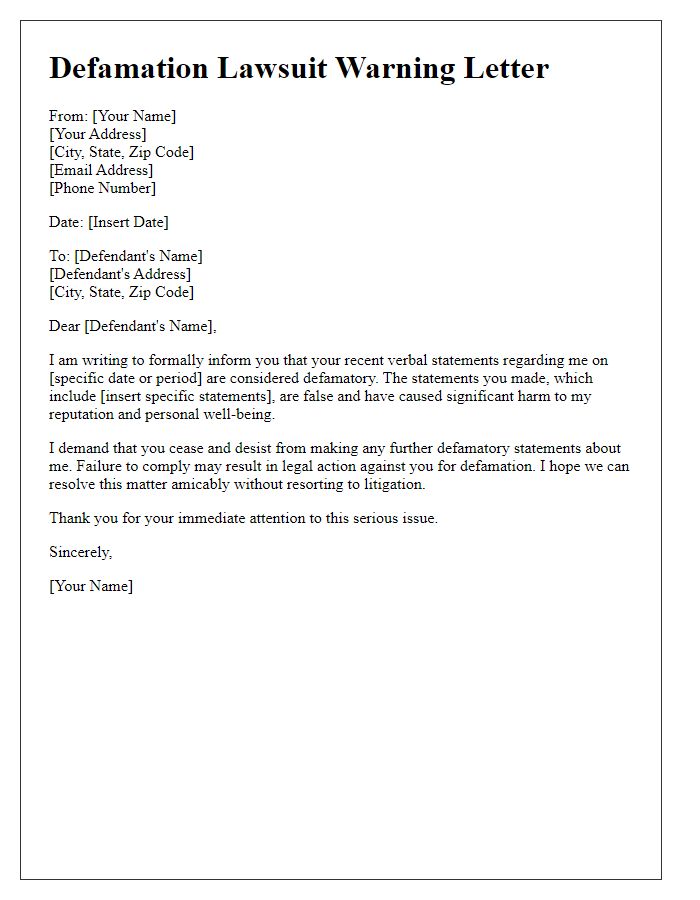
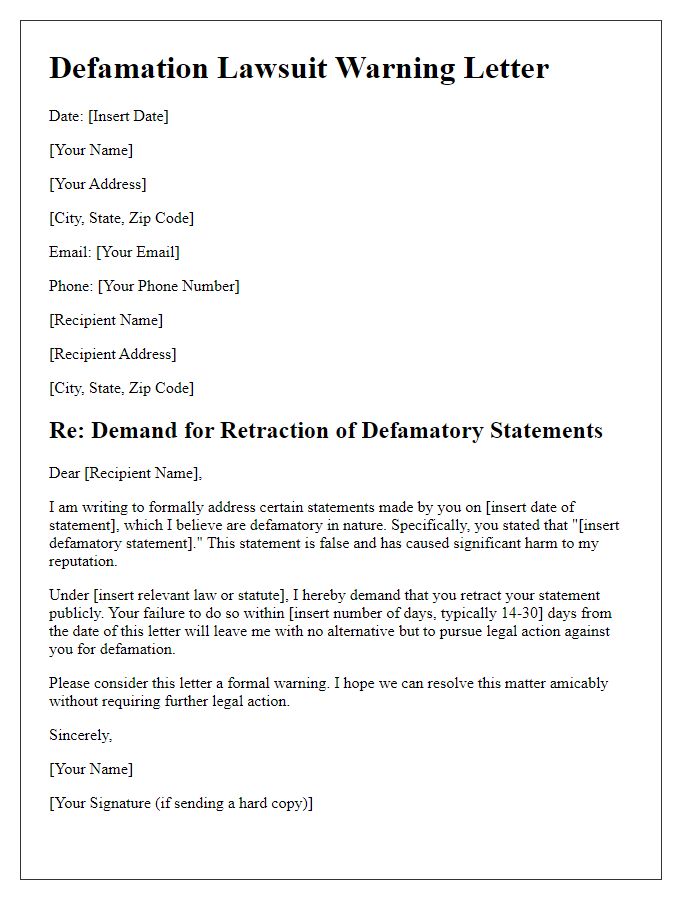
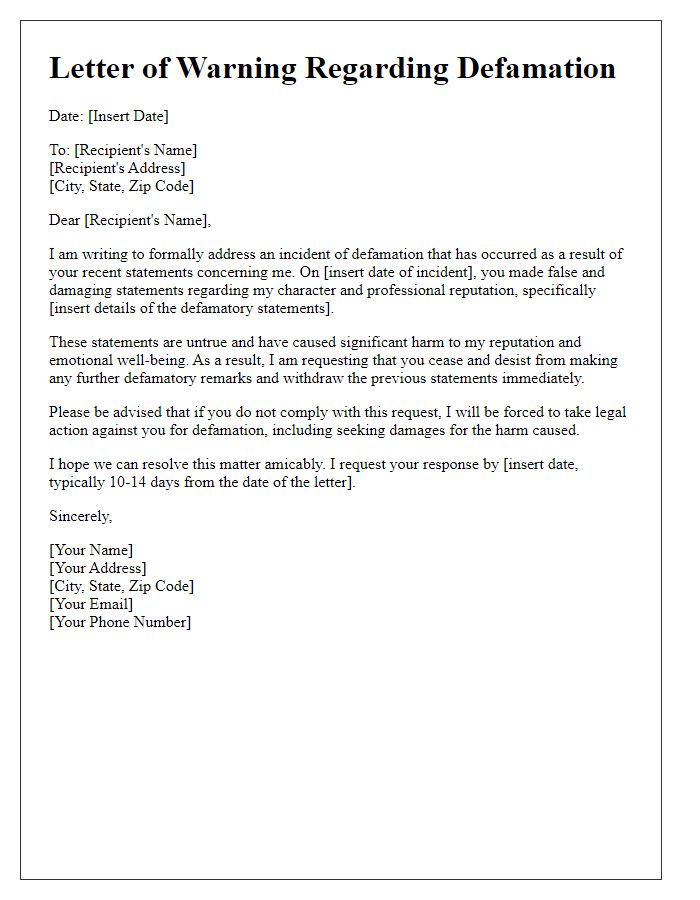
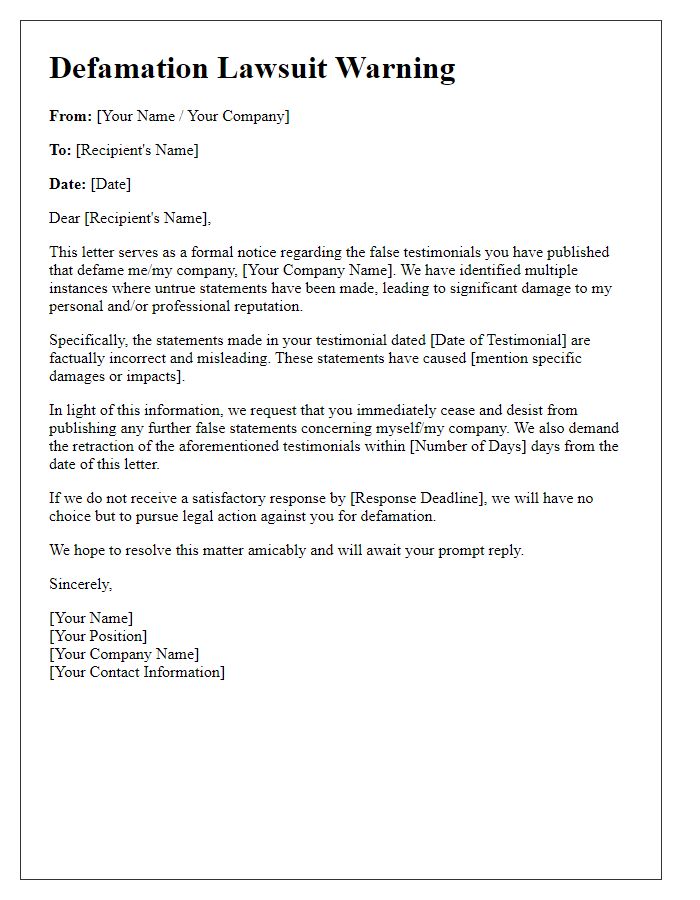

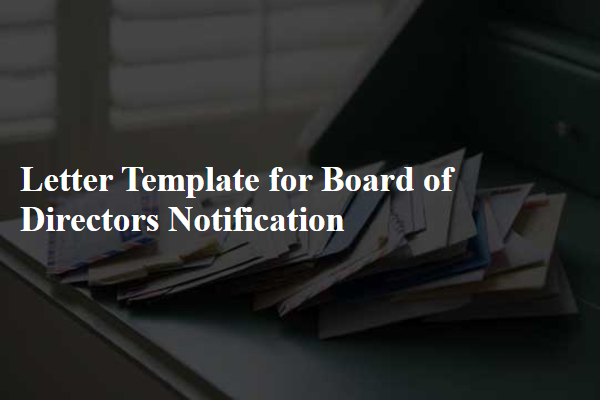
Comments